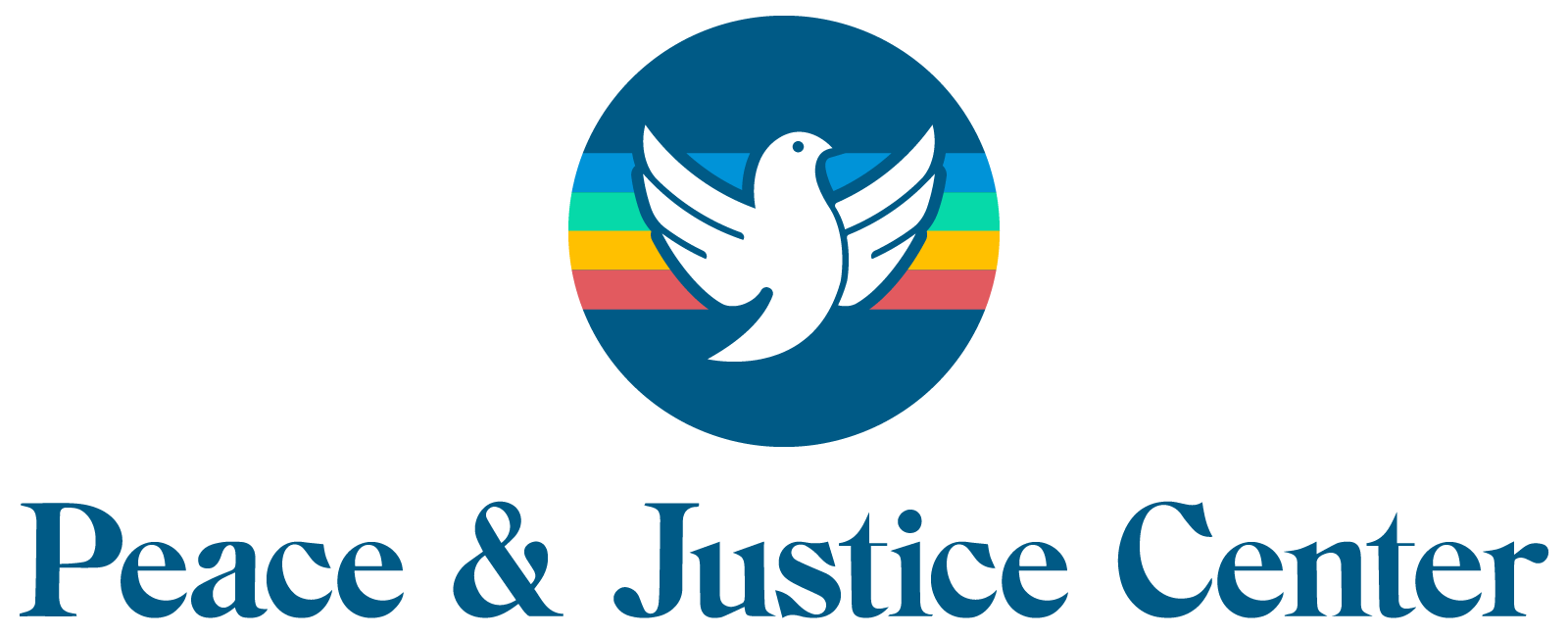I was born in a Palestinian refugee camp in Lebanon 12 years after my parents were forced to flee the Upper Galilee in historical Palestine. They lost their home, land, livelihood, and my mother lost her father to a bullet fired by a Jewish terrorist organization called the Haganah. I write “terrorist” organization because that is the label that was given them by the British authority that mandated Palestine post-World War I. My family became scattered between Lebanon, Syria, and the newly formed state of Israel.
Life in the refugee camp was never easy, but there was the hope of someday returning to the homeland of Palestine, kept alive through stories, songs and remnants of tradition. After coming to the U.S. I began meeting indigenous people whose stories paralleled my own: displacement from their land to reservations, loss of independence and identity through the creation of dependency on welfare; for the Indians, the Bureau of Indian Affairs; for the Palestinians, the United Nations Relief and Work Agency (UNRWA). I recognized similarities between the founding stories of the U.S. and Israel, in which the indigenous people helped the early settlers to survive, not anticipating the extreme forms of violence and greed that would follow, and the ever changing laws to support the latest land theft. I heard stories of hunger, disconnection, death, and resilience, too. And the same settler-colonial story of “manifest destiny” and “God-given” rights to land and resources for white Europeans.
The migrant stories I heard here also brought back sharp memories from my early childhood, times spent watching lines of young and old men waiting at dawn at the gates of the refugee camp hoping to be selected by the Lebanese for a day of work spent picking fruit or tobacco. I could smell the fear, anxiety and disappointment when the small trucks picking up laborers would arrive and leave. Until today, there are long lines at checkpoints in the West Bank, hours of waiting in the darkness to be allowed into Israel to work, hoping they carry the right papers and attitude to be granted passage through the cages of barriers and heavily armed soldiers.
I remember reading headlines in the Lebanese paper declaring “Palestinian Found Guilty of Theft,” another day, another crime, just like the ones we read about our Latino migrants. I heard stories of Palestinians dying in metal containers and cement trucks as they attempted to flee to the Arab Gulf looking for work. Until today, any Palestinian refugee working outside the refugee camps needs a sponsor to gain entry to work, and until today there are stories of abuse, failure to be paid, living as indentured servants. The stories from the U.S. borders with our southern neighbors are our stories: dying in deserts in search of work, food, education, and to escape violence, to secure “freedom.”
Racism and discrimination, two different sets of rules and laws, one for Palestinians, another for Jews, began with the birth of Israeli “democracy”. My cousins, who are considered Arab Israeli citizens, have children who attend schools funded by the state with less than 10% of the expenditures of Jewish schools. Health care is funded to Palestinians in a similar way. In the West Bank thousands of Palestinians face death or prison for resisting military occupation law. Over 7,000 Palestinians, some as young as 12, are locked away in Israeli prisons for crimes ranging from stone throwing to participating in non-violent political resistance. 500-700 Palestinian children are jailed each year. One out of 3 Palestinian males have served time in prison. Sound familiar? This is a similar story to People of Color, who have been subject to a different set of rules and laws since landing on U.S. soil as slaves, subjected to humiliation and myriad forms of racism mainly by, as James Baldwin put it, “people who think they are white.” Today, many members of U.S. police forces, including campus police, travel to Israel for training in Israeli military methods of crowd control, often paid for by our tax dollars. Racist rules and laws in Israel are not only used against Palestinians but the black and brown migrants, many of whom are Jewish, who fled to Israel to escape violence or seeking a livelihood. Even within the Jewish community itself there is discrimination—white Ashkenazi Jews of European descent retain political and economic power while the Sephardic and Arab Jews are considered second class, even though they are still more privileged than Palestinian Muslims and Christians.
It is true that history repeats itself. The ongoing separation of migrants and their children casts another long shadow back to the days of slavery in the U.S., when parents and children were heartlessly separated on the auction block; to mass incarceration of People of Color in the U.S., and Palestinians in Israel; the policy to deliberately dismantle families and communities.
In these times, if any of these stories speak to you of injustice—do something. Speak out, join or support the efforts of a group that is working towards social justice: the Poor Peoples Campaign, Black Lives Matter of Greater Burlington, Vermonters for Justice in Palestine, Migrant Justice, or any other organization whose mission is equality for all regardless of race, class, religion or sexual identity.
– Wafic Faour, Vermonters for Justice in Palestine
Wafic is a Palestinian American who has lived in Vermont for 27 years.

